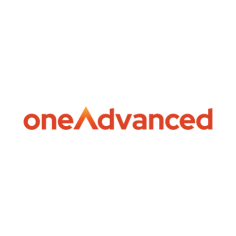Why you’re not hitting billable hour targets – find out with OneAdvanced
In the competitive landscape of legal services, achieving, or indeed surpassing, billable hour targets is pivotal for the sustainability and growth of law firms. Yet, many find themselves grappling with the question of why they’re not hitting these critical benchmarks.
The billable hour conundrum
At its core, the billable hour is a straightforward concept, yet its execution can be fraught with inaccuracies and missed opportunities. Law firms told us in our Legal Sector Trends Report survey that their biggest forms of profit leakage were missing time entries at 37% and inaccurate time entries at 23%.
The crux of the problem often boils down to human errors and inefficiencies in time tracking. Delay in logging time entries or outright omission due to oversight represents the most common pitfalls that law firms face. The implications of such errors are far-reaching, affecting not only revenue but also client trust and firm reputation.
Identifying lost hours
On average, a fee-earner at a law firm will spend over 66 hours a year manually inputting time recording entries that could otherwise be recorded; and even then, they omit 222 billable hours worked. That’s 288 billable hours that go towards their targets and towards the bottom line.
Moreover, firms typically only collect 89% of what they bill, with fee discounts and complaints a major factor.
By harnessing the power of time capture software, law firms experience immediate improvements in their billing accuracy and efficiency.
We’ve devised a time capture calculator that uses these figures, to reveal the added revenue possible through time recording software as a tangible number across your practice.
Consequently, the adoption of time capture software translates into a substantial increase in revenue, demonstrating a clear return on investment. Through correcting missing or inaccurate time entries, firms unlock their full earning potential, ensuring that every billable minute is accounted for and converted into revenue.
Fostering a culture of precision
Fostering a culture that prioritises accurate time recording is critical. This cultural shift begins with recognising the value of every billable hour and the role it plays in the firm’s success. Encouraging attorneys and staff to log time contemporaneously, rather than retroactively, minimises the risk of omissions and errors. Regular training sessions and reminders can reinforce the importance of this practice, embedding it into the very fabric of the firm’s operational ethos.
The solution to the missing hour
To support this cultural transformation, leveraging dedicated time capture software becomes indispensable. OneAdvanced’s Time Capture software is specifically designed to track activities accurately, ensuring that no billable hour goes unrecorded. Beyond mere timekeeping, this solution offers inbuilt compliance to ensure fee earners comply while billing clients, and detailed invoices to build trust and keep client satisfaction high, enabling firms to optimise operations and maximise profitability. The integration of time capture software into daily routines represents a strategic investment in the firm’s future, transitioning from merely meeting billable hour targets to consistently exceeding them.
The challenges in hitting billable hour targets often stem from overlooked minute details and ingrained habits that can be difficult to change. However, with the right tools and a firm-wide commitment to precise time recording, law firms can unlock their full potential. By instilling a culture of accurate time recording, complemented by the use of dedicated time capture software, firms will not question why they aren’t meeting their targets – they’ll be setting new ones.
In this era of technological advancement, the path to overachieving billable hour targets is clear. It requires a harmonious blend of technology, culture, and practice. With these elements in place, law firms can look forward to not only attaining but surpassing their financial goals, securing a competitive edge in the rapidly evolving legal market.



